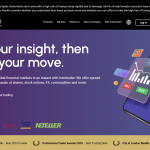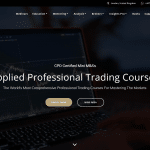Forex brokers are intermediaries that provide traders with access to the global foreign exchange market, enabling them to buy and sell currency pairs. They offer platforms, pricing, order execution, and customer support to facilitate currency trading.
This article explains the role, types, and functions of forex brokers.
Role of Forex Brokers
- Market Access: Brokers connect traders to the forex market through trading platforms like MetaTrader 4 or 5.
- Pricing: Provide bid and ask prices reflecting market conditions plus broker’s markup (spread).
- Order Execution: Execute buy and sell orders either internally (dealing desk) or directly through liquidity providers (no dealing desk).
- Leverage: Offer margin trading, allowing control of larger positions with smaller capital.
- Account Management: Handle deposits, withdrawals, and account services.
- Support: Provide customer assistance and educational resources.
Types of Forex Brokers
Dealing Desk Brokers (Market Makers)
- Act as counterparties to client trades, setting prices internally.
- Provide fixed or variable spreads.
- Can have conflicts of interest but guarantee liquidity.
No Dealing Desk Brokers (NDD)
- Pass client orders to external liquidity providers or interbank markets.
- Include Straight Through Processing (STP) and Electronic Communication Network (ECN) brokers.
- Offer tighter spreads and transparent execution.
How Brokers Earn Money
- Spreads: Difference between bid and ask price retained by the broker.
- Commissions: Charged per trade, mainly on ECN/STP accounts.
- Swap Fees: Interest charged for holding positions overnight.
- Other Fees: Inactivity fees, withdrawal fees, premium services.
Key Takeaways
- Forex brokers enable retail traders to access currency markets.
- Different broker models affect pricing, execution, and risk.
- Selecting a regulated and transparent broker ensures safety.
Frequently Asked Questions
What is a forex broker?
An intermediary offering trading access, pricing, and execution services in forex.
How do forex brokers make money?
Via spreads, commissions, and fees.
What is leverage?
Trading with borrowed capital to control larger positions.
Are all brokers the same?
No, they vary by execution model and services.
Can I trade forex without a broker?
No, retail traders need brokers for market access.




Leave a Reply
Please log in or register to share your thoughts.